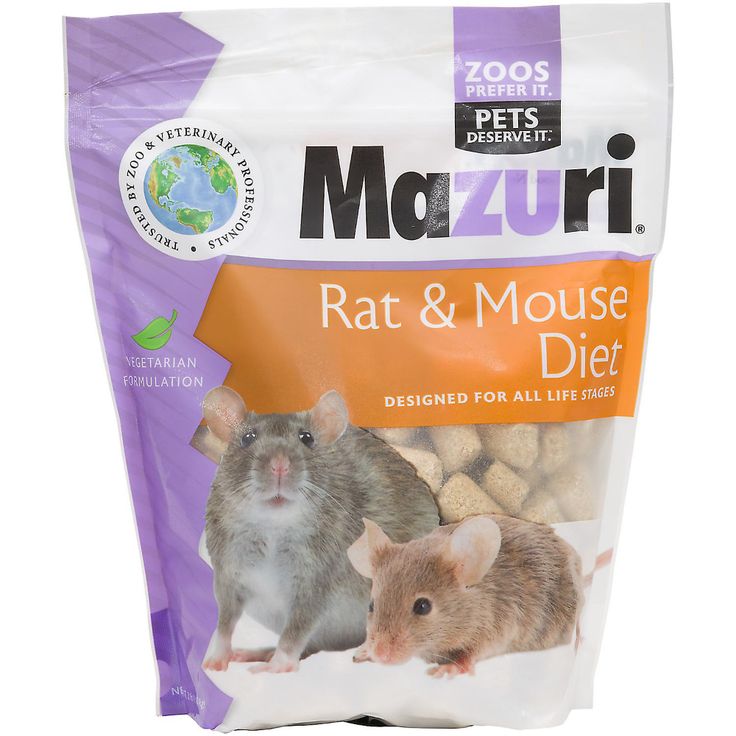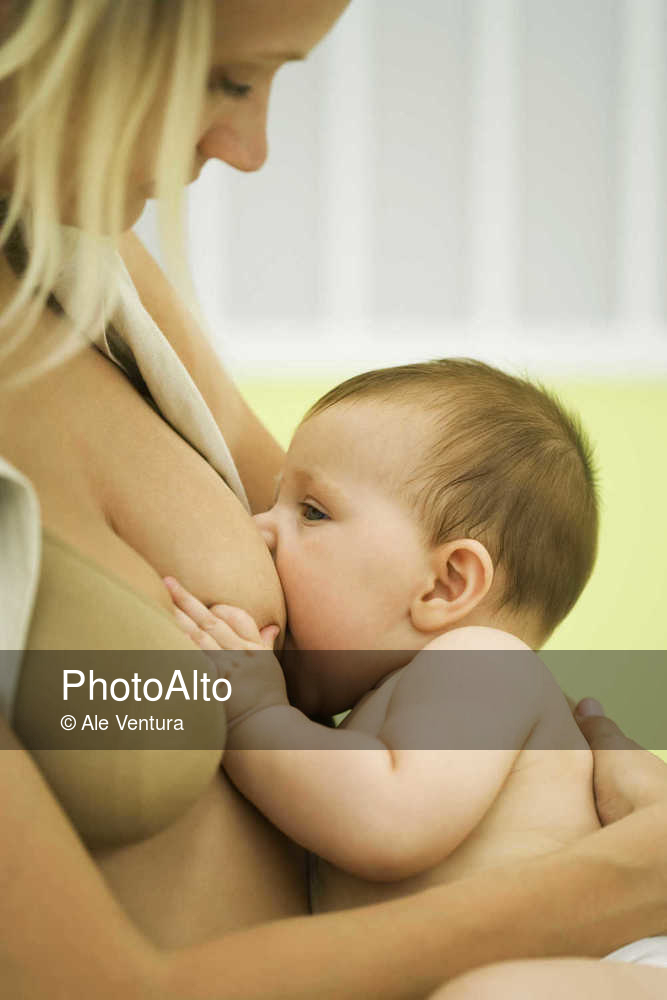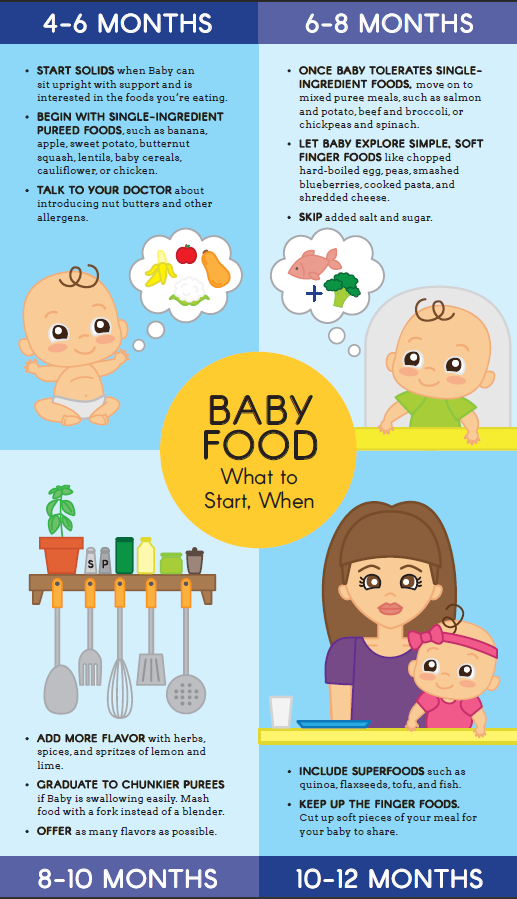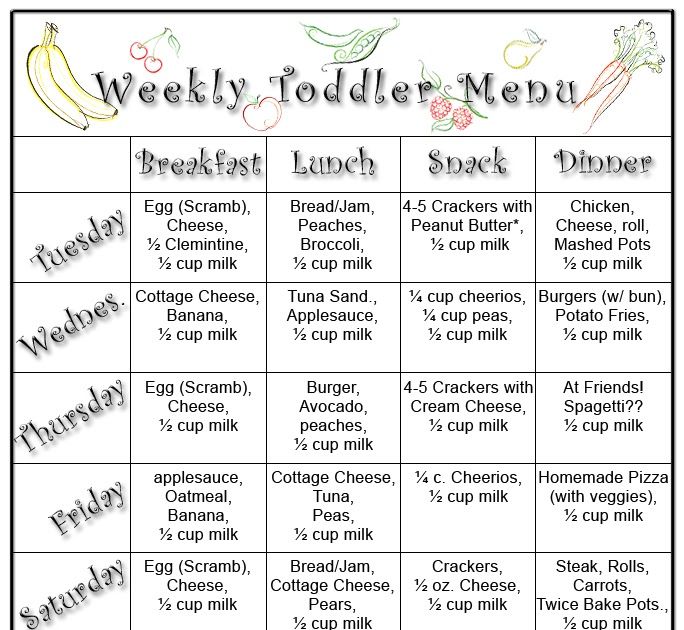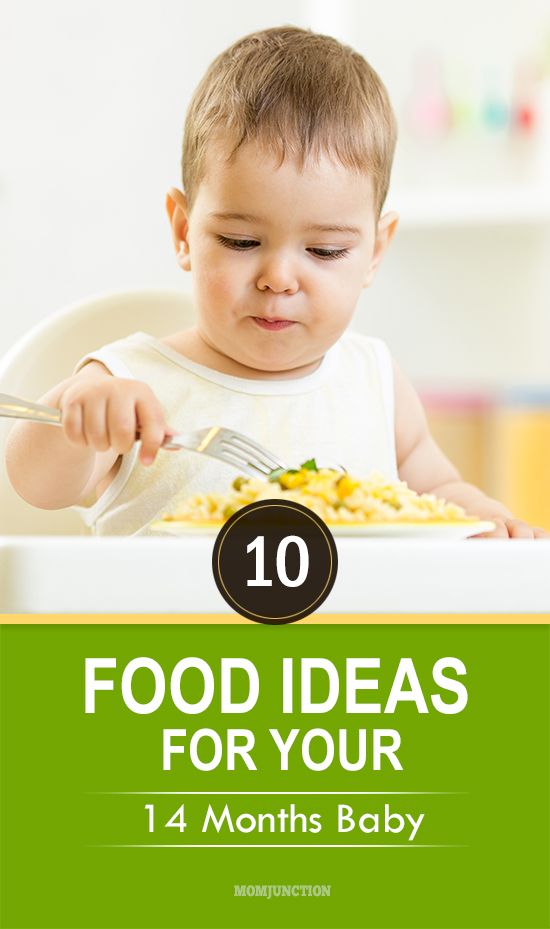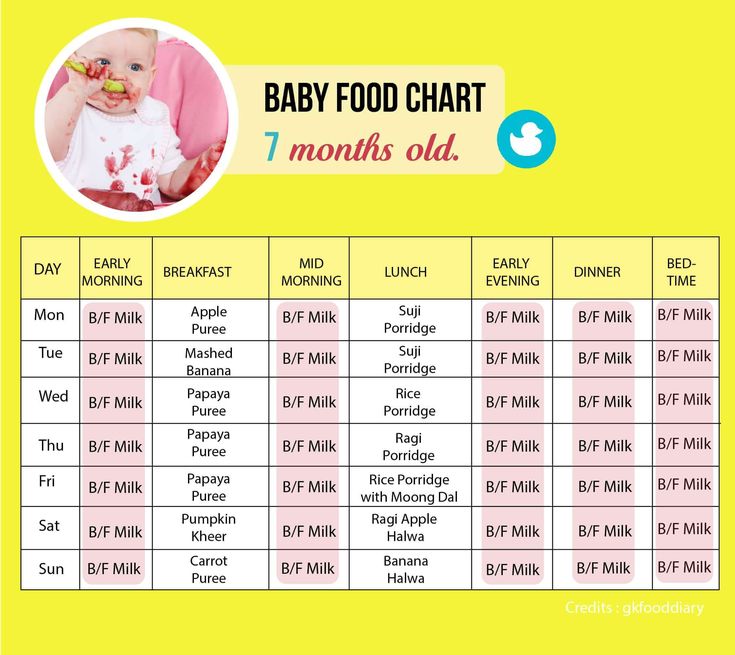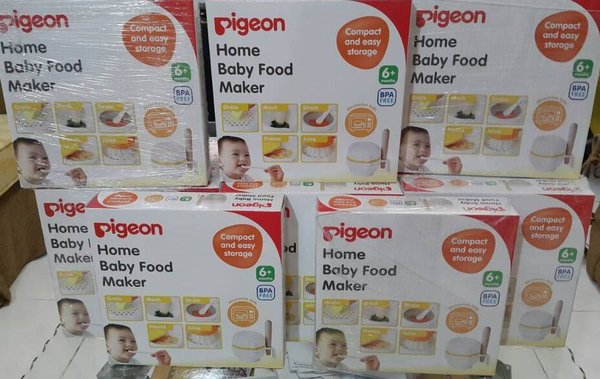Best baby food for rats
Can I Feed My Rat Baby Food? What Kind Is Safe?
Rats are opportunistic omnivores, which means they eat both meat and plants. They will eat practically anything if offered or if they are curious enough, and that includes baby food.
Baby food is an excellent and safe occasional treat for your pet rat. Not only that, it’s a wonderful reward for pet rat training. Just be careful with the amount of sugar and salt in the baby food.
With that said, not all baby foods are suitable.
Let’s find out what baby food you should add to your grocery list and when to serve them.
Healthy And Balanced Pet Rat Diet (With Baby Food)Before discussing the types of baby food to feed your rats, let’s discuss your pet’s nutritional requirements first.
Although rats can survive on almost anything, you can’t just feed them pet food and hope for the best.
Like other animals, rats need a specific diet for optimum nutrition and health or may develop nutrient imbalance and diet-related diseases.
For instance, too much protein can cause skin allergies and spots. Eating foods high in sugar and fat can lead to obesity.
Nutritionally-balanced rat pellets or kibbles with more than 14% protein are the recommended diet for rats. Growing pups (under 4 months) and pregnant rats may require at least 24% protein.
Components of a healthy balanced diet for rats:
| 70% | Nutritionally complete, age-specific commercial rat pellet or lab block | Oxbow, Mazuri, Envigo Teklad |
| 20% | Mix of veggies and fruits | Peas, carrots, cucumbers, potatoes, broccoli, tomatoes, bananas, watermelon, grapes, cherries, strawberries, plum |
| 5% | Treats | baby food, yogurt drops, dry oats, whole wheat pasta, whole nuts, vegetable sticks, cooked meat, dried fruits |
High-quality pellets or lab blocks must contain:
- 75-80% carbs
- 14-16% protein
- 4-6% fat
Suggested daily dietary intake using commercial rat food:
- 15 g of food/rat for growing rats and adults
- 15-20 g of food/rat during pregnancy
- 20-40 g of food/rat during lactation
Some pet rats can become picky eaters, so it’s essential to introduce them to various food when they are younger. It’s also safe to feed your rat human food in moderation.
It’s also safe to feed your rat human food in moderation.
Most rats love baby food, and it’s safe to give them as treats. These treats can help you bond faster with your pets and are also helpful during training.
Baby foods such as Gerber puffs or rice crispies can be used as treats. Commercial baby foods are formulated for infants, so they are safe for the delicate digestive system of rats.
Introducing baby food to your pet rat involves a bit of trial and error. Experiment with different varieties to see what your rats prefer.
Many pet owners have had success with fruity baby food, such as apple sauce, bananas, and blueberry. You can also try meat baby food made of chicken, turkey, and ham.
Baby food purees come in pouches, jars, or plastic tubs and are categorized into three different stages:
Stage 1: Finely pureed.
These are purees with a single ingredient.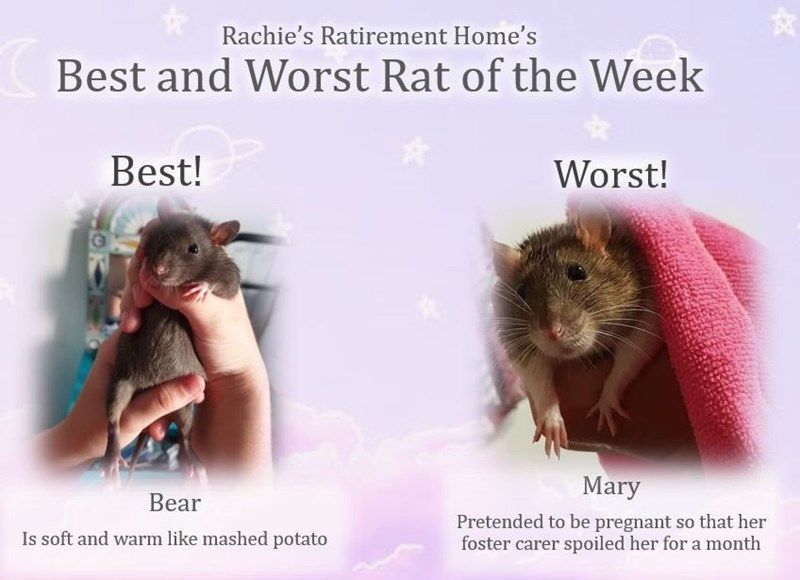 The consistency of the puree is thin and smooth, making it easy to swallow.
The consistency of the puree is thin and smooth, making it easy to swallow.
You can start introducing single-ingredient baby food to your rat so it would be easier to identify any potential allergies to food.
Examples from popular brands
- Beech-Nut Naturals Stage 1
- Plum Organics Stage 1
- Gerber Organic 1st Foods
- Happy Baby Organics Clearly Crafted Stage 1
Stage 2: Thicker consistency
This baby food contains a combination of food that are mashed or strained. Most rats enjoy stage 2 baby food made of bananas, apples, and squash.
Examples from popular brands
- Parent’s Choice Baby Food
- Beech-Nut Naturals Stage 2
- Beech-Nut Harvest Dinners Stage 2
- Earth’s Best Corn and Butternut Squash
- Cerebelly Organic Stage 2
Stage 3: Contain food chunks
These combination purees have more texture and contain small chunks of food. Expose your rat to several varieties of baby food to make them more accepting of new food as they age.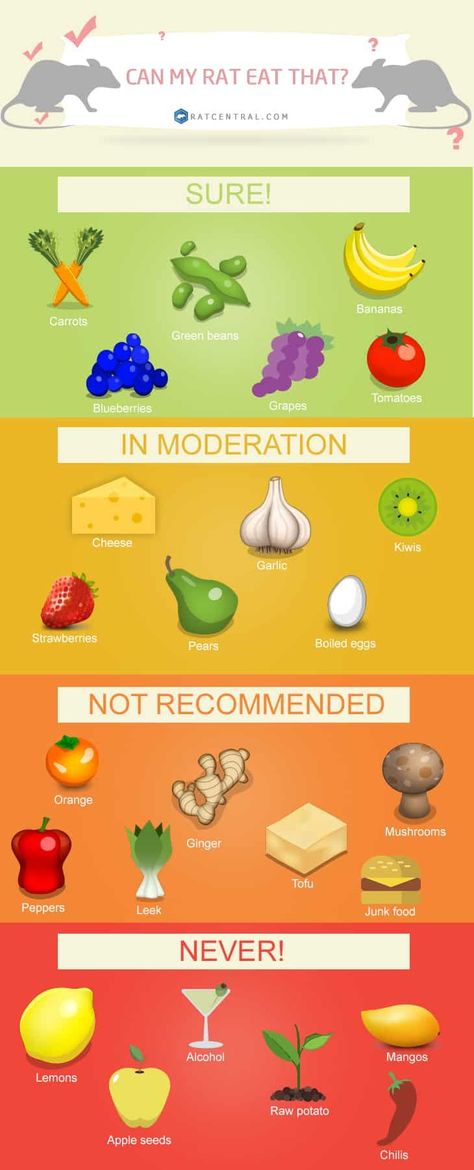
Examples from popular brands
- Gerber 3rd Foods Mealtime for Baby
- Beech-Nut Naturals Stage 3
- Earth’s Best Chunky Orchard Fruit
- Beech-Nut Naturals Superblends Stage 3
Watch this video on YouTube
Baby food should be given to healthy adult rats at least 2 to 3 times a week.
You can provide more to sick and aged rats, but it shouldn’t be your primary source of nutrients.
Rats will pick sweet treats and high-fat food over their essential mix, so make sure they have eaten their daily base diet before you give them treats. Baby food can be healthy, but too much is not.
Excessive consumption of sugary treats can lead to dental caries and obesity.
Studies revealed that obese rats have a shorter life span and poor breeding capacity. Tumor growth is also more common in obese rats.
Can I Feed My Rat Baby Food Every Day?Baby food is not a suitable alternative to food specially made for rats.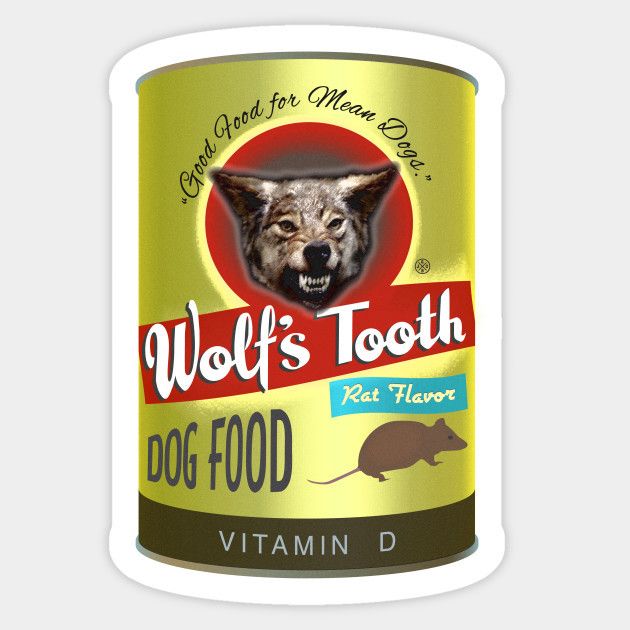 Giving your rats baby food every day may cause your rat to reject their healthy kibbles.
Giving your rats baby food every day may cause your rat to reject their healthy kibbles.
While high-quality, natural baby foods are available today, many are ultra-processed and contain added or free sugars.
A 2021 study found that almost 40% of baby food products in European countries contain at least one sugar-contributing ingredient.
More than 1/3 of the products with “no added sugars” claim on their labels contain free sugars or fruit and veggie purees.
Processed fruits are considered healthier than added/free sugars, but the process of pureeing releases sugar that may have the same effects as other sugar forms.
Baby Food for Older RatsAs rats grow older, they may develop dental problems and have trouble eating blocks and seeds.
They may also have weaker back legs and difficulty standing up or holding their food. Some may lack appetite and lose a lot of weight.
You can feed older rats soft food, such as baby food, to help them gain weight.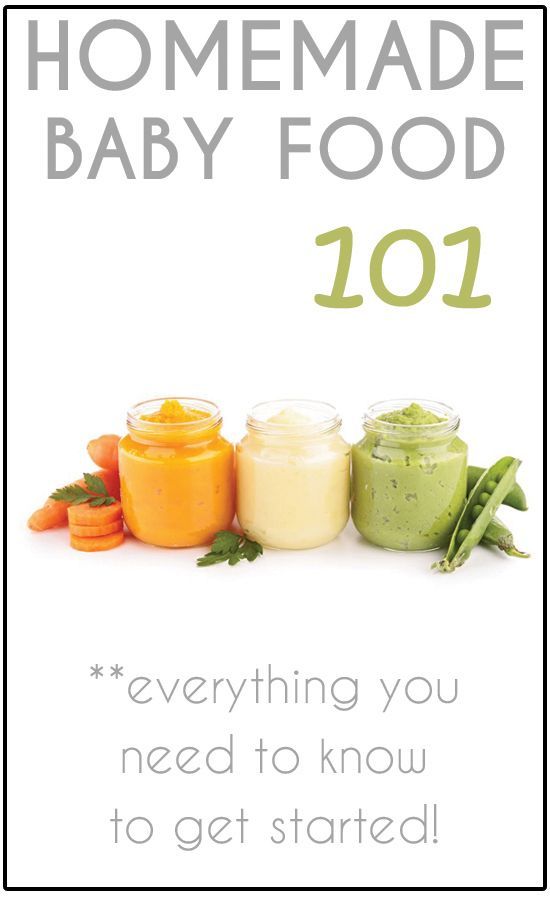 Alternatively, you can add baby food to a ready-made or homemade wet meal.
Alternatively, you can add baby food to a ready-made or homemade wet meal.
- Canned food for senior dogs and cats
- Feast egg food (bird feed)
- Soakable mixtures or porridge
The ready-made soakable mix may contain flaked rice, flaked buckwheat, vegetable flakes, and bulghur wheat, among others.
This nutritionally balanced food can replace the rat’s regular dry mix. You may add Nutrical to the wet meal to give your rats a calorie boost.
Another way to feed your elderly rat is to grind their pellets and add baby food, soy milk, or cooked oats. An elderly rat’s diet should contain less protein at around 12%.
Baby Food for Sick RatsAs sick rats may lack the strength to eat solid food, you may offer soft sugary foods to tempt their appetite. You may need to syringe feed your rat if it’s not drinking or eating on its own.
Sick rats may have any baby food as long as it is low in sugar, salt, and preservatives.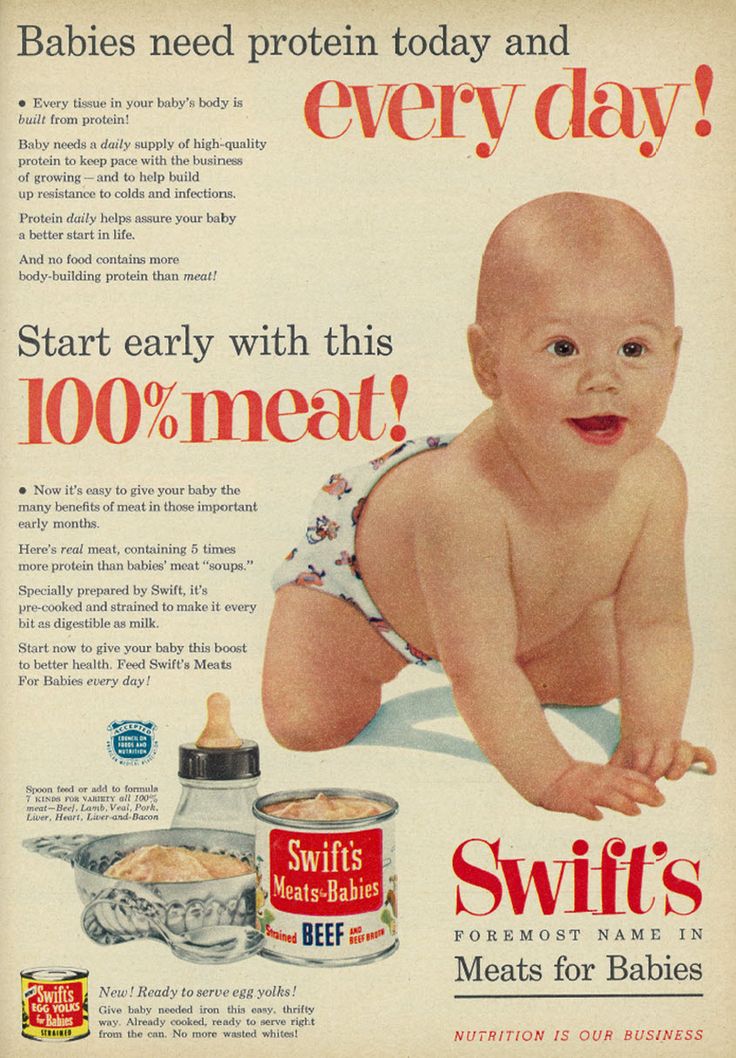 Too much baby food can cause diarrhea in sick rats.
Too much baby food can cause diarrhea in sick rats.
If you are looking for a particular ingredient (carrot or pumpkin), that ingredient should be on top of the list. When choosing organic baby food, make sure they are USDA certified.
If your pet rat is obese, senior, and has an underlying medical condition, consult your veterinarian to determine your pet’s specific daily dietary requirements.
Baby Foods to AvoidWhen choosing baby food in the market, read the labels closely.
Check for the ingredients list and ensure the product is not high in sugar and salt.
Avoid baby food with many additives, such as artificial colors, nitrates and nitrites, and other preservatives.
Heavy metals such as arsenic, cadmium, lead, and mercury may contaminate baby food products.
Heavy metals are naturally found in the soil and water. As plants grow, they absorb these metals and make their way into our food.
The FDA (check the information here) has been working hard to remove products that do not meet the standards for baby food safety.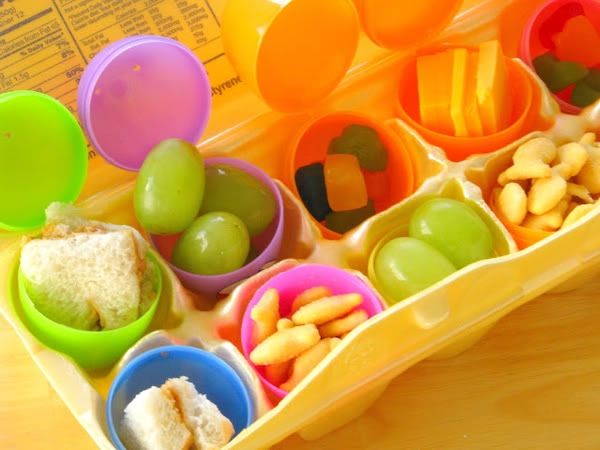
If you see certain brands that were recalled for contamination, remember that not all products from the same brand are contaminated.
Check the brands’ websites for the list of products that have been recalled.
FAQHow many pellets should a rat have?Many pet owners believe that rats should have free access to pellets, while some vets recommend feeding pellets twice a day.
It depends on your pet’s feeding behavior. Some rats tend to overeat when they are bored, while others stop when they are full.
About 2 to 3 blocks per rat, supplemented by veggies and fruits, are enough for your pet’s daily needs.
To know more about food quantities, check out our article on How Much Food To Feed Your Pet Rats!
Can rats eat baby cereal?Rats can tolerate cheerios, puffed rice, rice crispies, and other baby cereals.
When feeding store-bought food to your rats, choose foods with no artificial colors, flavors, and sweeteners.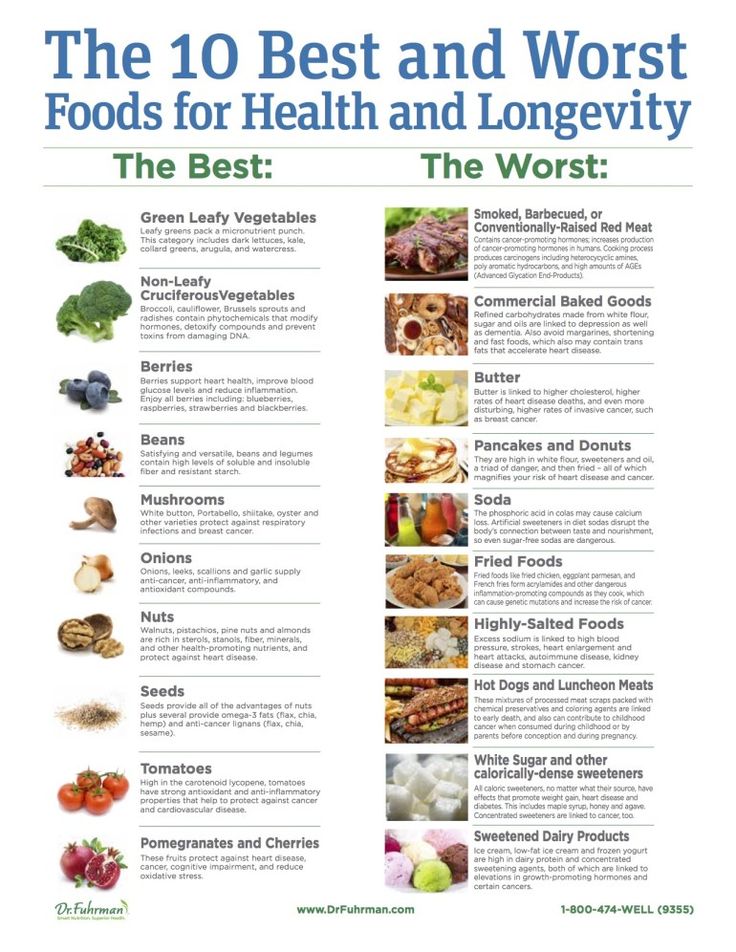
Baby foods are considered supplemental foods or treats and should only be fed occasionally.
Can rats eat yogurt?Yes, rats love yogurts! Low-fat, low-sugar yogurts with live cultures benefit rats when eaten occasionally.
Yogurt drops can also be used as a training aid. You can make yogurt drops using a dehydrator.
Our Can I Feed My Rat Yogurt article gives many recommendations, along with how to make your yogurt drops. Be sure to check it out!
Can My Pet Rat Have Baby Food? [Avoid These Foods] – Pet Sort-Out
Proper nutrition is the basis of all healthy lives. The statement goes true even for your pet rat. Providing your pet rat with healthy, nutritious food is important for them to build a strong immune system to fight diseases in the future.
But in that context, if the question is whether your pet rat can have baby food or not then scientifically the answer will be, NO! your pet rats can not have baby foods all the time. Baby foods do not contain enough nutrition to support your pet rats’ healthy living. Moreover, the high content of salt, sugar, and refined nutrition is not good for the fragile body metabolism of rats.
Baby foods do not contain enough nutrition to support your pet rats’ healthy living. Moreover, the high content of salt, sugar, and refined nutrition is not good for the fragile body metabolism of rats.
In this article below, we will have an in-depth discussion on why human baby food is not appropriate for your rat baby. Also, we will learn about food habits, balanced diets, and safe food choices that you can offer your pet.
Is Baby Food Ideal For Pet Rats?
You can treat your little rat baby with store-bought baby food occasionally. Rats love anything sweet to nibble on. However, this does not necessarily mean baby food is safe for their health!
It is our responsibility as pet parents to make sure of their healthy eating habits. If you want to treat your fur baby with some store-bought human baby food, I suggest picking up some organic yummies from the rack.
Many pet rat owners across the globe have chosen baby food for rats as small treats and not as a mainstream source of nutrition. Many foods that are totally healthy and delicious for us humans are proven toxic for rats.
Many foods that are totally healthy and delicious for us humans are proven toxic for rats.
Blue cheese, green potato, chocolates, and raw beans are some human foods that should be strictly avoided for pet rats.
An orphaned or rejected rat baby can, however, be given cow milk or baby milk formulas during the initial stages.
Feeding a rat is simple if you know what nutritious food to offer. However, the answer behind the ideal-ness of baby food for rats lies behind a little bit of complex human and rat anatomy.
There are reports that not all human food is safe, healthy, and nutritious to help rats build a strong immune system. Home-cooked food with rich protein content helps rats seek the inner strength to fight common diseases like tumors, liver, lung dysfunction, and other respiratory diseases.
Settling for baby foods and wrong nutrition can even cost your pet babies their lives.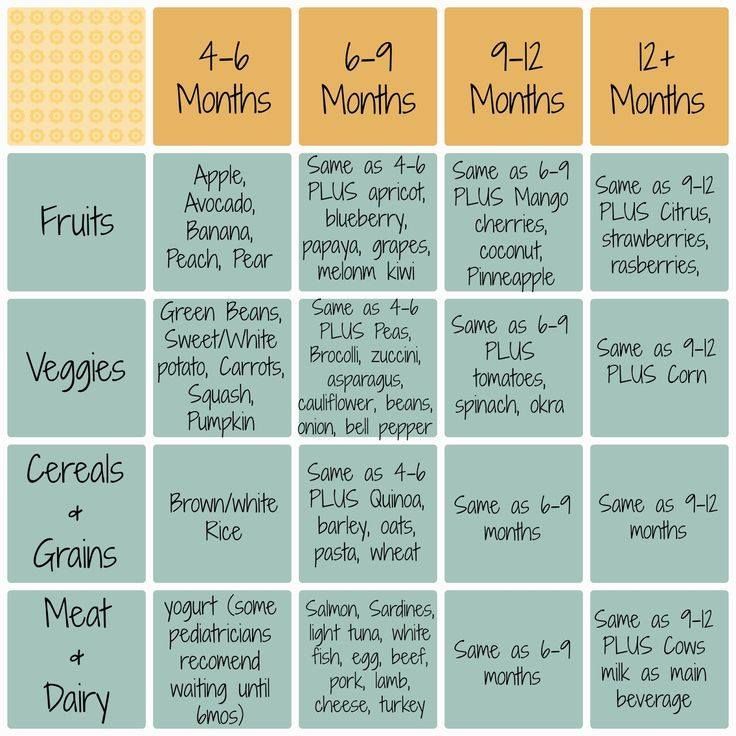 I suggest having a thorough understanding of the medical aspect of why baby food is not suitable for your beloved fur babies.
I suggest having a thorough understanding of the medical aspect of why baby food is not suitable for your beloved fur babies.
Why Baby Food Is Not Ideal For Pet Rats?
Rats have a lot of physical and anatomical similarities with human babies. The digestive system in rats is similar to humans. It starts from the mouth and is very crucial for proper digestion for food and healthy being.
The digestive system helps transform food into valuable nutrients for our bodies. The digestive tract in rats is lined with small digestive glands that secrete juices contributing to the easy digestion of food. Humans and rats match all these levels of digestion. However, this does not make human baby food ideal for rat consumption.
Also, human beings and rats are both omnivorous animals, consuming all fruits, vegetables, and flesh. These make some pet parents consider that rats are qualified to have human baby food. This is exactly when rat parents push their beloved fur babies towards health hazards unintentionally!
Though there are a few similarities between humans and rats, only an in-depth study of rat anatomy will paint a completely different picture.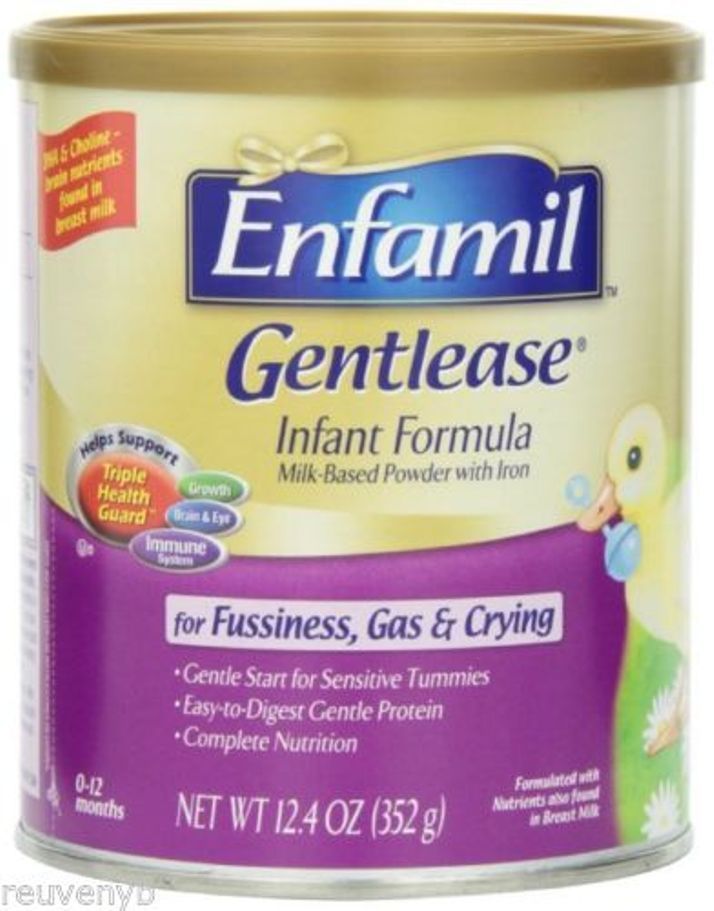 Understand that all organs in animal bodies are designed to perform different actions to support the food digestion process.
Understand that all organs in animal bodies are designed to perform different actions to support the food digestion process.
The gallbladder in humans helps in the easy breaking down of fatty foods. Rats on the other hand have no gallbladder included in their digestive system. Rats are small rodents who do not usually consume large quantities of fatty foods as a part of their daily diet.
Thus, eating enriched fat full fruits, dairy, meat or human baby foods can lead to excess fat accumulation in the rat body. Uncontrolled eating in rats thus makes them obese early in life, sprouting other deadly diseases as well.
The large intestines in rats are rather more enlarged as compared to humans. Also known as the cecum, the large intestine in rats is designed to ferment grains, cereals, and seeds that are a predominant part of a healthy rat diet.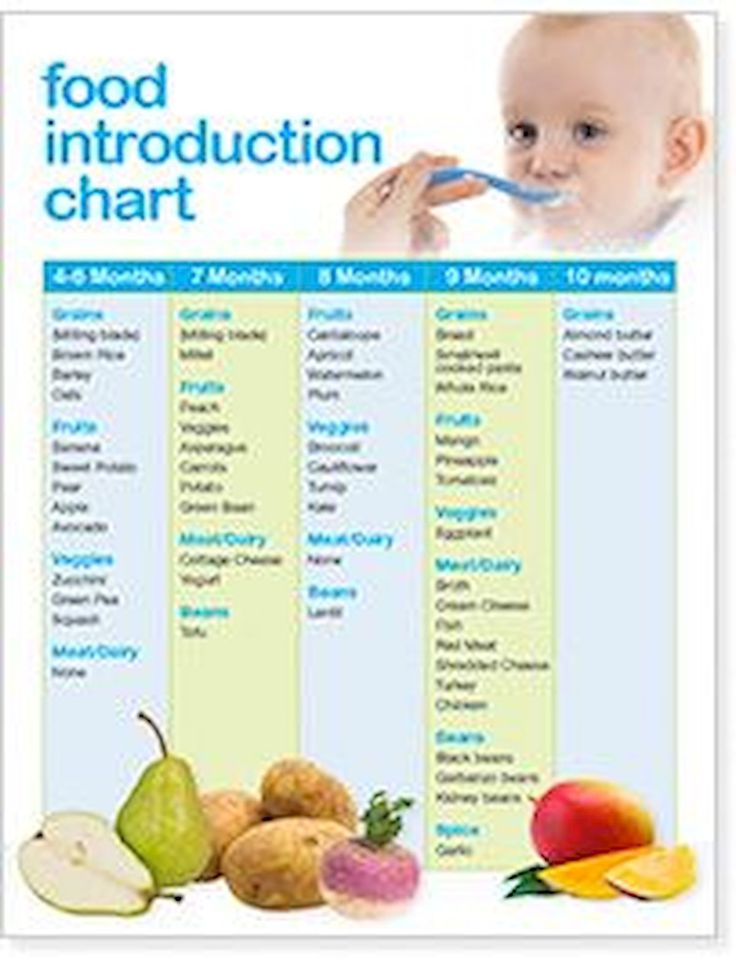 The elongated large intestine is designed to soak in useful nutrients from the insoluble fibers easily.
The elongated large intestine is designed to soak in useful nutrients from the insoluble fibers easily.
As responsible pet rat parents, we have to understand that the physical and dietary needs of both humans and rats are different. Though rats will and are able to nibble or eat any food you offer them, the same can be toxic for their body and overall health. [Source: Hindawi Clinical Journal]
However, there are several human foods that you can easily offer your pet rats in healthy and limited quantities. Read on to know more about the same!
What Human Baby Food Can You Feed Your Pet Rats For Ample Nutrition?
Understanding the healthy food habits of our pets can help us identify foods that can be offered to them. It has become easy to select one brand of readymade food, with a rising number of pet care stores all around the globe.
These rat foods are highly laden with sugar, salt, and other refined nutrients that can be unhealthy if continued in the long run. Also, our beloved pet rat babies always have a plethora of flavors and nutritions readily available.
Also, our beloved pet rat babies always have a plethora of flavors and nutritions readily available.
This excessive food supply and unconscious eating patterns are deadly as it may affect their digestive system. Many reports have shown that pet rats get obese as soon as twelve months. Thus, it is utterly crucial to develop healthy and homemade food habits from a young age.
Below listed are the regular human food that is absolutely safe and healthy for your pet rat babies:
| Source: | Examples |
|---|---|
| Fruits | Apple, apricots, avocados, bananas, pear, watermelon, grapes, kiwi, blackberries, blueberries, corn, cucumber, papaya, butternut squash, tomato, plums, strawberries, pomegranates (If your pet rat rejects any fruit, do not force-feed them). |
| Vegetables | Kale, celery, mint, basil, cooked green beans, boiled sweet corn, cauliflower, potatoes (strictly avoid green potatoes), broccoli, collard greens, carrots, beetroot, spinach, sweet peas, zucchini, pumpkin, spinach.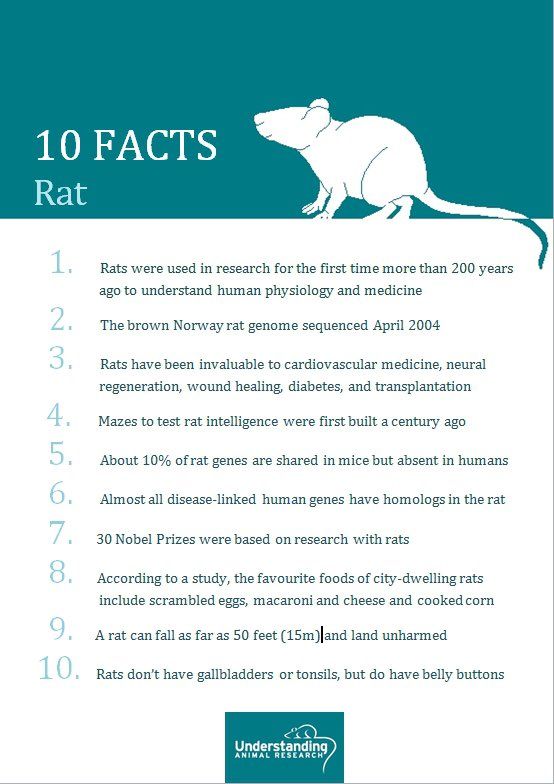 |
| Treats | Store-bought baby food (occasionally), unsalted plain popcorn, whole wheat pasta, semolina, dry oats. |
| Meat | Shredded boiled chicken, small pieces of cooked meat, beef, pork, cooked fish. |
| Dairy | Milk, Yogurt, butter, cheese like cheddar, elby, gouda, gruyere (Please avoid any other cheese for your pet rats). |
| Nuts | Cashew nuts, almonds, pumpkin seeds, pistachios, pecans, walnuts, peanuts, pine nuts, macadamia nuts. |
| Whole-grain foods | Bread, cooked rice, whole grain boiled pasta, whole grain crackers, biscuits. |
Fruits, veggies, and meat act as important food sources for pet rats to help them build a strong immunity system. However, it is important to keep in mind that all the food you offer to rats must be chopped into small cubes for easy consumption.
Unsafe Human Food For Your Pet Rats
Our beloved fur babies love to eat and nibble on food.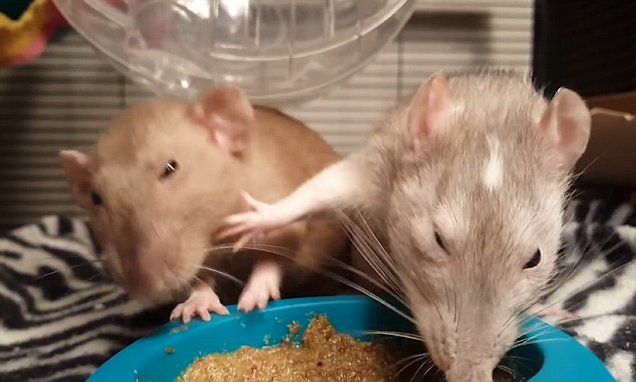 Give them vegetable peels and frozen treats on hot sunny days and watch them enjoying small organic treats. However, these little curious explorers can consume human foods that are toxic for rat health.
Give them vegetable peels and frozen treats on hot sunny days and watch them enjoying small organic treats. However, these little curious explorers can consume human foods that are toxic for rat health.
The list below covers all food that you should strictly avoid for your pet furry babies.
- Chocolate,
- Raw sweet potato
- Raw corn
- Raw beans
- Cabbage
- Poppy seeds
- Onions
- Cabbage and Brussel sprouts.
- Lemon (any citrus fruit)
- Carbonated drinks, liquor.
- Avocado skin( better to offer only peeled fruits and vegetables)
- Blue cheese, cottage cheese, gorgonzola, ricotta, mozzarella, stilton, brie, feta (Soft, strong cheeses are to be avoided).
- Wild insects and raw meat.
- Avoid any junk food, caffeinated drinks that you are consuming.

Any of the above-mentioned foods can be very toxic for your pet baby. We advise you to be careful and keep a close eye on any human baby food that you offer to your pet rat.
An Omnivorous Balanced Diet For Pet Rats
Rats are nocturnal rodents and no wonder they make great pets. Drawing a basic picture of wild rats, it is clear that they feed on a wide palate of food and flavors. Ranging from vegetables, seeds, grains, and animal proteins occasionally. These eating habits make them omnivorous in nature.
The wild rat diet works as a basic graph of our fancy pet rat diets. However, it is important to change all foods into healthier versions to avoid common rat diseases like early obesity, tumors, and respiratory infections. Controlling the calorie intake and stimulating activities also become crucial parts of healthy pet rat growth. [Source: Pet Care Veterinary Hospital]
In the points below I have drawn a detailed outline of a balanced pet rat diet.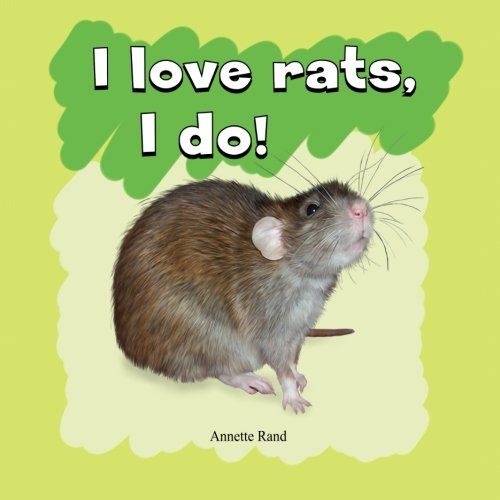 This also includes food habits many human babies may adopt. I encourage having a detailed read to understand rat specific dietary needs and how you as a responsible pet parent can help them attain the same.
This also includes food habits many human babies may adopt. I encourage having a detailed read to understand rat specific dietary needs and how you as a responsible pet parent can help them attain the same.
- The Foundation of Pet Rat Diet:
Fortified foods contribute to setting up a strong base of the pet rat diet. Specifically, these fortified foods are readily available foods that add up extra much-needed nutrients to our fur babies.
You may pick this basic source of nutrition from the shelves of most pet food stores. However, this is where your work as a responsible rat parent begins! Keep a close eye on the guaranteed amounts of macro and micronutrients that fortified foods provide.
Start with checking the macronutrients like proteins, fats, vitamins, and fiber content mentioned on the back label. Many pet rat parents only check the first few nutrients and leave the rest. Certainly, here is where you are neglecting your rat baby’s health.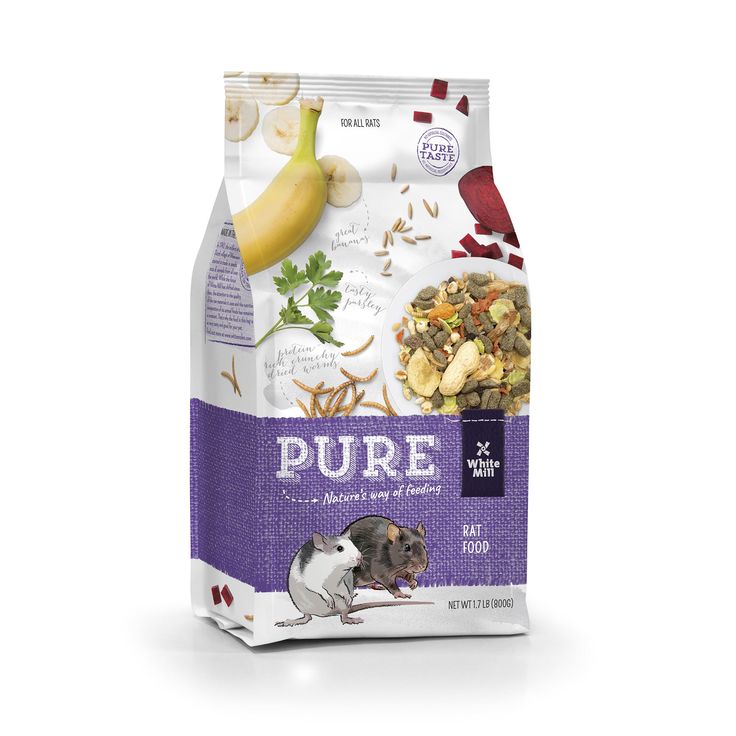
It is important to have a thorough read on the listed nutrients and their percentage in the food pack. Understanding the nutritional value of store-bought fortified food for pet rats will help you feed them a healthy palate of nutrition in the long run. I recommend reading all the nutrients carefully to ensure balanced nutrition for our furry babies.
- The Fiber Factor:
As I mentioned earlier, rats are considered omnivorous in nature, most pet parents consider protein and fats to be the main source of nutrients. Fiber nutrients are often neglected in the process. However, fiber brings its own set of health contributions when consumed.
There are two main types of fiber that are an important nutrition source for pet rats. Soluble and insoluble fibers.
Soluble Fibers: To begin with, soluble fibers come from food like oats, flaxseeds, carrots, beetroot, barley grain, etc.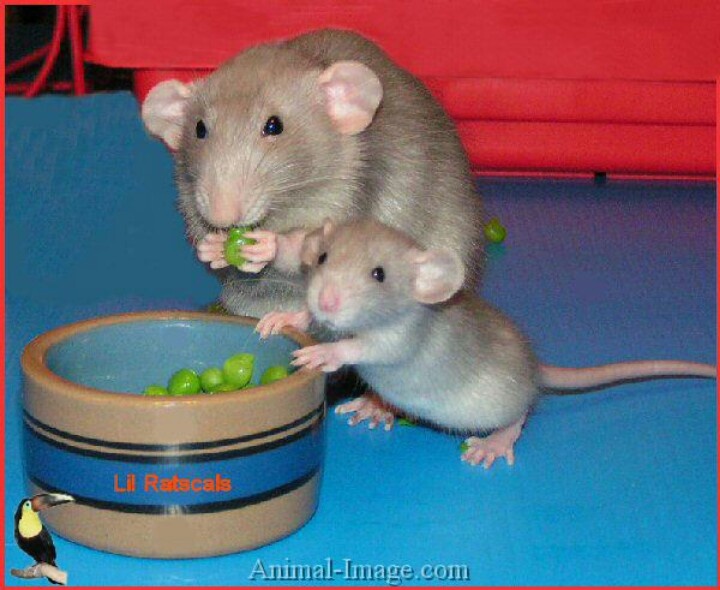 No doubt that your pet rat will love these foods when offered. Experiments and pet parents who tried giving these fibrous foods to their pet babies have reported better excretion quality, improved colon health, and cholesterol reduction.
No doubt that your pet rat will love these foods when offered. Experiments and pet parents who tried giving these fibrous foods to their pet babies have reported better excretion quality, improved colon health, and cholesterol reduction.
Soluble fibers when consumed in appropriate quantities create a thick gel in the stomach. This gel formation of food creates a fuller appetite feeling and saves rats from overeating.
Insoluble Fibers: Insoluble fibers come from food sources like hay, wheatgrass, bran, cereal husk. The insoluble fibers do not absorb water and pass through the rat intestine almost unchanged. However, insoluble fiber sources help rodent pets with improved gut health, insulin production, and balance excess weight gain.
It is important for pet parents to understand the importance of both fibrous nutrients. A mix of these two can be of great help to pet rats.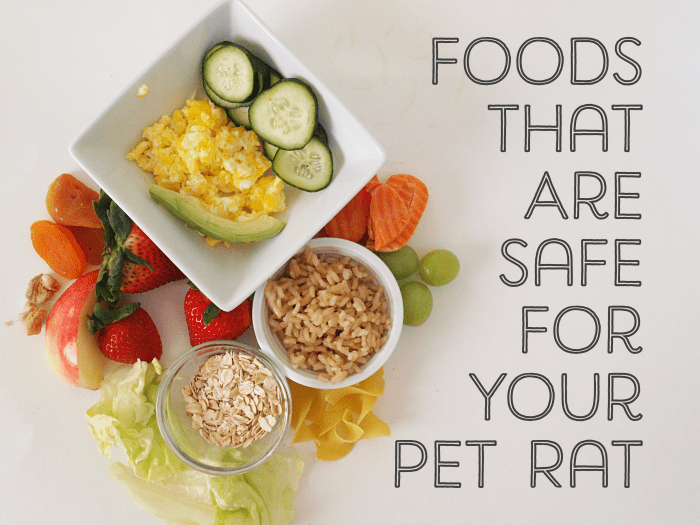 Thus, selecting the right fortified food will help fulfill all nutritional requirements of our omnivorous pet friends.
Thus, selecting the right fortified food will help fulfill all nutritional requirements of our omnivorous pet friends.
- Food supplements:
As omnivorous species, rats have a tendency to nibble on all possible food sources. This includes rich proteins and fats. If the intake of these rich sources is not controlled, obesity is inevitable.
Vegetables, fruits, and homemade diets should thus be a predominant source of nutrition for your pet babies. The table below will help you understand the quantity and major food sources for your rats.
| Nutrition: | Quantity: | Food Source: |
|---|---|---|
| Fats | 2-3 times a week only (half teaspoon). | Unsalted nuts and seeds like pumpkin seeds, pecans, pistachios, avocado, cashew nuts. |
| Proteins | 2-3 times a week only (one tablespoon). | Mealworms, hard-boiled eggs, cooked shredded chicken, cooked beans, cooked meat.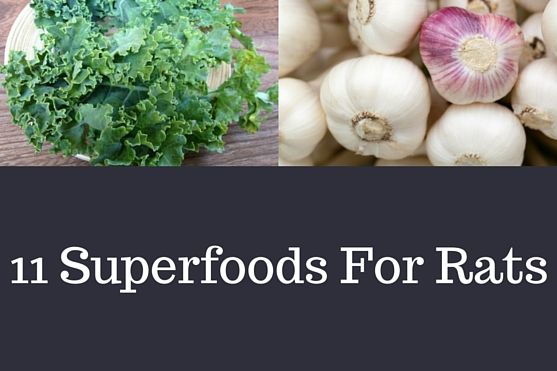 |
| Fruits | 2-3 times a week only (less than one tablespoon). | Apples, Bananas, blueberries, blackberries, cherries, grapes. (all fruits are mentioned in the previous table) |
| Grains | Everyday.1-2 Tablespoon | Cooked rice, bread, and wholewheat pasta. |
| Veggie | Everyday.1-2 Tablespoon | Potatoes, celery, kale, tomato, cauliflower, pumpkin, etc,(all fruits are mentioned in the previous table) |
Proper care when accompanied by healthy food intake will help keep your pet rats at the best of their health. Choose better as pet parents and your fur babies will thank you!
Nourishment makes a strong contributing factor to all animals be it human babies or rats. Though there are many similarities between a rat with a human baby, the dietary needs are different in both.
A human baby can not make up for all the necessary nutritional requirements for a healthy pet rat. It is thus important to select the right, healthy and nutritious homemade food for our little fur babies
What to feed a decorative rat? - Sprouts of Life
- Details
- Parent category: Rodents
- Category: Domestic rats
- Published on 06.
02.2015 11:31
- Views: 9826
More and more pet lovers are now buying ornamental rats. But caring for them is not as easy as it might seem at first glance.
These small animals also need attention. It is especially necessary to monitor the proper nutrition of ornamental rats. nine0015
This type of rodent should eat from 30 to 40 g of food per day (data may vary depending on the age and weight of the animal). Pregnant rats need to be fed four times a day, all others twice.
After you have purchased this animal, be sure to consult the person who sold it to you. Ask about the diet that was before and the frequency of feedings. Decorative rats are very sensitive to any changes, so you should not make an abrupt transition from one diet to another. nine0015
These animals must not be fed what is called " master's table ".
Eliminate rats from the diet:
Fried, salty, fatty foods, sweets, pickled vegetables and fruits, flour products, milk, raw potatoes, cabbage, as well as spinach and sorrel in any form, chocolate products.
Decorative rats are allowed to be fed:
1. Baby food. You can buy it at any store or pharmacy.
2. Also, you can give your ornamental rat porridge cooked in water or chicken broth: buckwheat, oat, rice, millet, and corn porridge. There are also special cereals for animals, which can also be found in pet stores. nine0015
3. The most practical way for busy people to feed their new pet is to feed them dry food, which is available at pet stores.
4. If you want to treat your animal to some kind of treat, then the way out of this situation is to buy cereal sticks that have both fruit and vegetable flavors.
5. The main component of the diet should be meat and fish products - all types of meat are acceptable, any fish, all kinds of seafood. It is recommended to boil the meat before feeding the rat. nine0015
6. Fruit may be given in small quantities to avoid an allergic reaction in the animal. Vegetables are also recommended to be boiled.
7.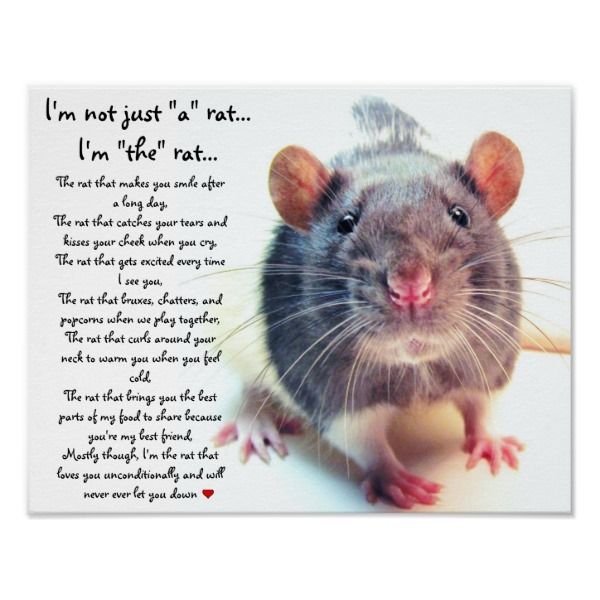 Water must be constantly renewed in the cage. Without it, a decorative rat can only live up to two days. Water should be either filtered or boiled.
Water must be constantly renewed in the cage. Without it, a decorative rat can only live up to two days. Water should be either filtered or boiled.
8. Raisins, dates, berries are allowed to be given to rats with a sweet tooth from time to time.
9. Branches of fruit trees will be a good "simulator" for your pet's teeth. nine0015
10. Small numbers of decorative rats favor greens (lettuce, dill, parsley), but wild herbs should be avoided or carefully selected. The most harmless collection: dandelion leaves, clover, plantain.
- < back
- Next >
How to feed a decorative rat: a balanced diet
As you know, rats are omnivorous animals. Therefore, many feed their rats from their table, not knowing or not thinking that our animal food is often too spicy, salty, sweet, fatty, or even not suitable at all for purely physiological reasons and can lead to big health problems. or even death. In addition, it is impossible to make a sufficiently balanced diet from “our food” that would meet all the needs of the animal. This does not mean that rats in general, under no circumstances, can not select a piece from their plate. Can. But the main diet of the rat should be strikingly different from yours, your food should be given to the rat only occasionally, in the form of a pleasant exception. And most importantly: food should not be salty, spicy, sweet, fatty, fried, smoked. You can see general information about allowed and prohibited foods on the page "Feeding rats: do's and don'ts". nine0015
This does not mean that rats in general, under no circumstances, can not select a piece from their plate. Can. But the main diet of the rat should be strikingly different from yours, your food should be given to the rat only occasionally, in the form of a pleasant exception. And most importantly: food should not be salty, spicy, sweet, fatty, fried, smoked. You can see general information about allowed and prohibited foods on the page "Feeding rats: do's and don'ts". nine0015
The rat diet for most rat breeders is as follows: the basis is food or a grain mixture and in the form of complementary foods - animal protein, vegetables / fruits, sour milk, treats, etc.
The basis is food should be a special rat food from different manufacturers, which can be bought at the pet store, or homemade grain mixtures. Of course, industrial feeds are more convenient to use, you don’t need to compose them, look for some ingredients, but it often happens that for some reason they don’t suit you (you don’t like the composition or the “price-quality” ratio, etc.
Rats should always have a food bowl. In rats prone to fullness, a variant of "dosed nutrition" is possible, i.e. the bowl is filled once a day, based on the fact that the average daily intake of an adult rat is a tablespoon of food.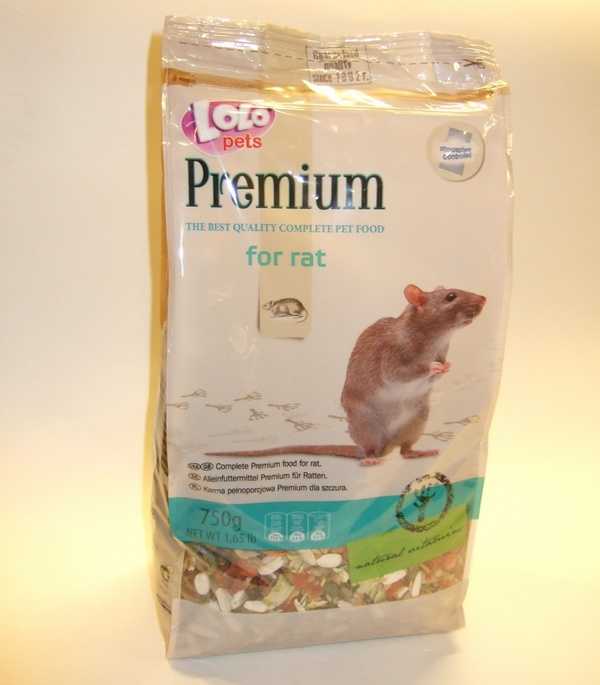 Rat cubs cannot be limited in food until six months old!
Rat cubs cannot be limited in food until six months old!
Vegetable food - vegetables, fruits, berries, herbs
Vegetables and herbs contain a large amount of vitamins and minerals. In addition, these products have a low calorie content, which has a beneficial effect on the “figure” of rats. But most fruits and berries contain a large amount of sugars, so they should be much less in the rat's diet than vegetables and greens. This is especially true for rats prone to obesity. Please note that the vegetable type of complementary food is only an addition, and not the main part of the rat's diet. The predominance of succulent feed can lead to diseases of the gastrointestinal tract and a general deterioration in both the well-being and health of the animal. nine0015
Vegetables, fruits, herbs, berries should be given every day or every other day. There is no unambiguous “daily rate”, because. for each animal, this norm will be individual. Of course, in a flock environment it is difficult to determine individual needs, but one can start from the general reaction of the flock to a certain amount of vegetables / fruits in the diet.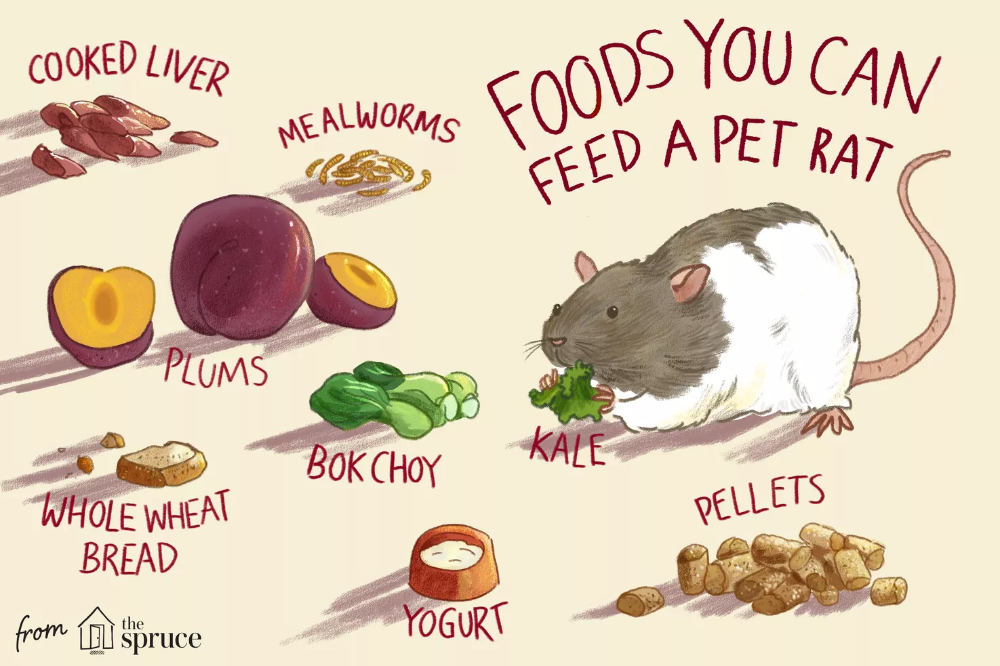 So, for example, if one of the members of the flock (or even several) has diarrhea or softened stools, then the amount of juicy plant foods should be reduced. On average, 10-15 grams of vegetables / fruits per rat per day is the amount after which there should definitely be no problems. nine0082
So, for example, if one of the members of the flock (or even several) has diarrhea or softened stools, then the amount of juicy plant foods should be reduced. On average, 10-15 grams of vegetables / fruits per rat per day is the amount after which there should definitely be no problems. nine0082
Complementary protein - meat, eggs, fish, seafood
In the diet of rats, both vegetable products and products of animal origin should be present in sufficient quantities. Rats are not vegetarians, they need animal proteins both for growth and development, and for immunity and maintenance of the body. Animal protein sources for rats include boiled meat, fish and seafood, chicken or quail eggs, meat baby food, premium/super premium dog or cat food. nine0015
Animal protein is given to rats about 1-2 times a week. For rat pups up to six months, the amount of animal protein can be increased several times compared to adult animals and given several times a week.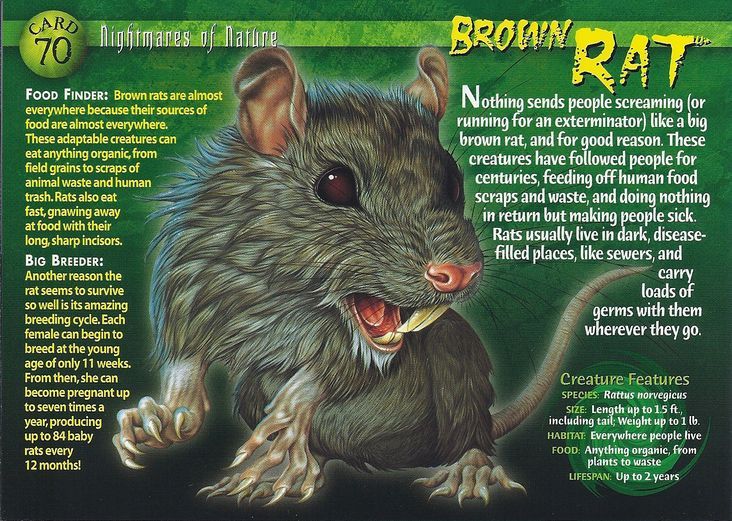 Important: the younger the rat, the more animal protein its body needs for normal development.
Important: the younger the rat, the more animal protein its body needs for normal development.
Fermented milk products - yogurt, cottage cheese, kefir
The benefits of fermented milk products such as cottage cheese, yogurt or kefir are well known: they are an ideal source of calcium, and also contain lacto- and bifidobacteria that are beneficial for the intestines. In addition, rats eat them with great pleasure. The only "contraindication" to the introduction of sour milk into the diet of rats is individual lactose intolerance, which occurs quite often in rats, and is expressed in intestinal upset, up to severe diarrhea (therefore, when introducing a new product into the diet of rats, it is always worth checking the reaction of her body to it by feeding a small amount to start). But even in this case, there is a way out: a sufficient amount of lactose-free fermented milk products is now being produced. It is best to give rats sour milk with a low fat content (but not fat-free! 1. 5-5%) and without additives. nine0015
5-5%) and without additives. nine0015
As for fermented milk products, the opinions of experienced rat breeders differ: some believe that rats do not need them; others give them to rats occasionally (several times a month), such are the majority; still others believe that fermented milk products will definitely not be worse and give them to rats several times a week. At the same time, in the end, there is no difference in either health or life expectancy of rats receiving different amounts of sour milk. Therefore, each owner has the right to choose the most convenient option for themselves, based on their beliefs or personal preferences (and the preferences of their rats). nine0082
Treats
Treats are an essential part of feeding their rats for most rat breeders. And there is nothing wrong with that. Only here the main thing is not to harm the animal, so alcohol, sweets, chips, sausage and other harmful products in the rat diet have absolutely nothing to do! You can pamper a rat with a nut, a cracker, a piece of unsweetened cookies, boiled pasta, a piece of sweet fruit and other tasty and not harmful products.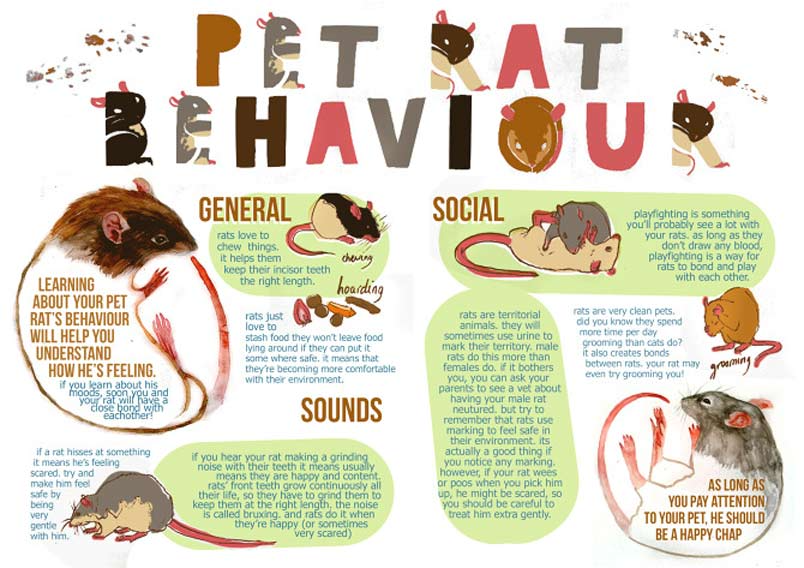 And some rat breeders themselves prepare various delicacies for rats, and willingly share their recipes with the rest, which you can see in this thread. nine0015
And some rat breeders themselves prepare various delicacies for rats, and willingly share their recipes with the rest, which you can see in this thread. nine0015
Rats should only be given treats occasionally, as a reward or just for fun. The main thing is that this should not happen according to the principle: “passed by the cage - gave the rat a treat”, but, rather, as an exception: a small piece of something tasty, for example, once a day.
Other
Many rat breeders go beyond the above list and indulge their rats, for example, with baby food, or even real dishes. Whether a rat needs it is a moot point, but if the food is not harmful, then why not? For example, baby food contains a lot of vitamins and minerals, and besides, rats like it, you just need to know the measure, i.e. give it to animals quite rarely (1-2 times a week) and choose “natural” varieties without spices, for example, with meat, vegetables, fruits, bypassing all kinds of “pasta in sauce” and so on.